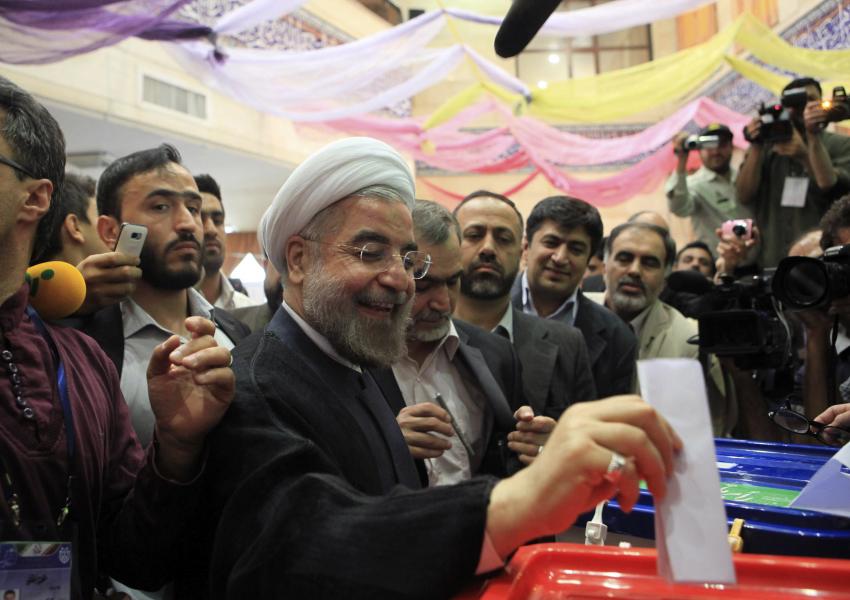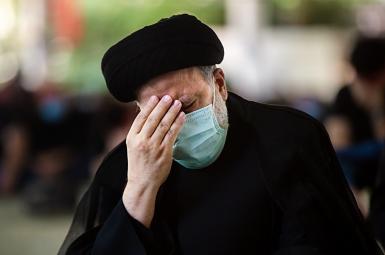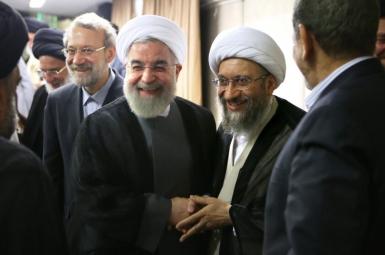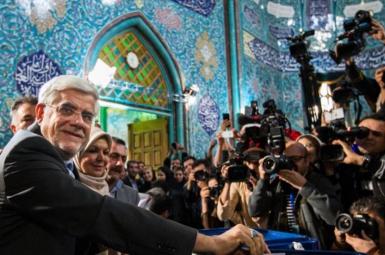
Iran's Reformists To 'Borrow' A Presidential Candidate To Facilitate Political Comeback
Prominent figures in Iran's so-called ‘reformist’ camp have been calling on the people to take part in the next presidential election in June 2021, despite having lost their former glory and expected to stay on the sidelines.
The reformists have been marginalized by the hard core of the Islamic Republic in recent years, it is still not clear whether the call by reformist figures is simply a move to appease Supreme Leader Ali Khamenei, or it is a genuine campaign toward electing a reformist president next year. After all, turning their backs to the tightly controlled elections in the Islamic Republic would be seen as a stab at its legitimacy.
In the Majles (parliament) elections in February most reformists were prevented from running by the hardliner Guardian Council and many concluded it is hopeless to pretend that they can play any major role in the country.
Things began to change last month, when one of the leaders of the reformist Green Movement, Mehdi Karroubi, who has been under house arrest for nearly 9 years now, urged reformist elements to become politically active and start electioneering by naming candidates and introducing political platforms.
Last week, reformist newspapers in Tehran opined that this autumn might see the end of Karroubi and former Prime Minister Mir Hossein Mousavi's house arrest and published an interview with reformist Executives of Construction Party Gholam Hossein Karbaschi who also said that reformists should be more actively taking part in the upcoming election.
On Wednesday September 23, Mohammad Mousavi Khoiniha a reformist leader and an occasional critic of Khamenei also called for the reform camp's preparation for the June election.
In the meantime, pundits speculated that Iran's reformists who do not seem to have a prominent candidate to run for president, might want to groom a moderate conservative such as former Majles Speaker Ali Larijani for the post.
Critics however opposed the idea and reminded that "rented candidates" like Hassan Rouhani in the 2013 and 2017 elections might further damage the weakened reputation of Iran's reformists.
Reformist activist Rasoul Montajabnia told Arman daily on September 22 that entering the election with a rented candidate would be yet another mistake after Rouhani, whose candidacy was promoted by Reformists, returned to his conservative roots shortly after his election and forgot about all the promises he had made to his reformist supporters.
Reformists believe that Rouhani's poor performance, as well as the inaction of prominent reformists in the previous parliament have eroded the reform camp's legitimacy and their candidate's electability.
Rouhani has come under fire even by those who helped him in previous elections. Sadeq Zibakalam in a tweet on Wednesday harshly criticized Rouhani for "the rise in the rate of exchange for US dollar to around 300,000 rials, the inflation rate which is more than 50 percent, recession, high military expenditures and hefty spending on the nuclear program, and an international isolation that has made Iran dependent on China."
The rate of exchange for a US dollar on Wednesday September 23 was more than 4,000 times since the mullahs took over political power in 1979.
Nevertheless, none of the prominent figures who have called for involvement in the election has nominated any candidate.
So far, there has been no opposition to reformists' election involvement on the part of hardliners, the Guardian Council, the IRGC and Khamenei's office. It is likely that the hard core of the regime that has been shocked by the extremely low turnout in both the August parliamentary by-elections and the main elections in February, has come to the conclusion that reformists' presence can boost the turnout and buy legitimacy for the Islamic Republic.
Even having a conservative presidential candidate disguised as a reformist might help Iran's hardliners to further their own agenda. More than a few reformist figures have pointed at Larijani as a prospective "rented" candidate. Unlike most other Iranian politicians, Larijani has started his rise to power under Khamenei's leadership and still enjoys his blessing.
However, the most important player in any election is the voter. During the last rounds of major protests in Iran in 2017, 2018 and 2019, the public has shown its distrust of both political factions in their slogans as they believe both are involved in financial corruption, violation of human rights, suppressing dissent and taking advantage of the nation's riches for personal benefit.
Some reformists believe that former reformist President Mohammad Khatami’s charisma might still work to mobilize voters. But Khatami himself does not believe so. During the campaign for the Majles elections in February he did not encourage anyone to take part in the election as a voter or a candidate. Many reformist observers at the time said that even if he did, it was unlikely that his call would be heeded.
Khamenei, however, has two choices: Running a low-turnout election like what happened in February and attribute it to the coronavirus pandemic or something else such as the people's dissatisfaction of Rouhani's performance, or allowing some prominent reform figure to run, hoping that he might be able to control him in the same way he harnessed the momentum of Khatami's reforms and turned it into a lackluster movement.
The problem for the latter scenario is that such a figure has yet to emerge as all those already on the scene have been discredited or badly marginalized by their own poor performance or by the regime's restrictive measures.







